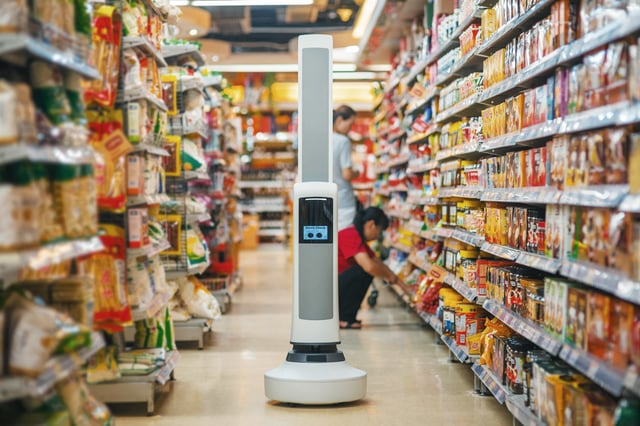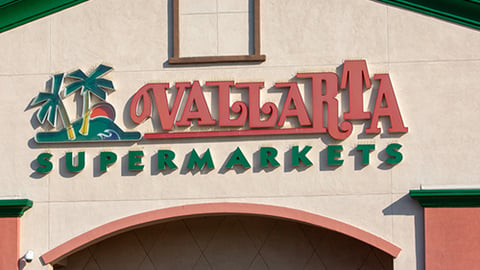Majority of Retailers Are Losing Operating Margin to In-Store Inefficiencies: Report
Simbe, a provider of store intelligence solutions, has released a new study in collaboration with Coresight Research, a research and advisory firm specializing in retail and technology. According to the report, "The State of In-Store Retailing: Opportunities to Redefine Operations," the majority of retailers are investing, or planning to invest, in new in-store technology solutions to improve performance across inventory management, operations and planning.
[RELATED: Big Ideas, Big Speakers to Shine at GroceryTech 2024]
The report surveyed 150 retail decision-makers across the United States to assess industry pain points and technology adoption. The findings revealed that retailers are experiencing significant challenges – and revenue losses – related to managing operations across the store, including out-of-stocks, price and promotion execution, planogram compliance, e-commerce fulfillment, and assortment planning:
- Everyday operational challenges remain widespread across retail. An overwhelming number of retailers reported significant challenges with core business functions, including managing out-of-stocks (92%), executing price and promotions (96%), planogram compliance (93%) and assortment planning (93%).
- Retailers report in-store inefficiencies costing at least 4.5% revenue. More than 70% of respondents lost at least 5% operating margin in each area of out-of-stocks, price and promotion execution, planogram compliance, and allocation and assortment planning. On average, retailers lost 4.5% of revenue to these inefficiencies. Addressing these issues would drive an additional revenue opportunity for retailers of $127.9 billion in 2024, growing to $143.3 billion in 2027, Coresight Research estimated.
- Mis-executed promotional campaigns are the most challenging in-store inefficiencies. The majority of respondents have seen high mispricing rates (75%) and improperly executed promotional campaigns (81%) — and nearly one in five retailers reported a mispricing rate of more than 15%.
- Retailers lack visibility into key business functions. Respondents reported low visibility into out-of-stocks (45%), planogram compliance (43%), price and promotion (40%), and assortment planning (32%).
“Modern retail has simply become too dynamic for status quo tools, and retailers who fail to adapt are experiencing the financial ramifications,” said Deborah Weinswig, CEO and founder of New York-based Coresight Research. “As the retail technology industry continues to advance, we’re seeing more leaders invest in proven AI- and data-based solutions that drive efficiencies and enhance transparency throughout the store. This study underscores the critical role of store intelligence in closing the revenue and information gaps that exist today.”
To minimize lost revenue and improve store performance, Coresight Research and Simbe found that retailers are turning to new in-store technologies that operate seamlessly within retail settings and leverage AI, data analytics and automation to optimize store operations and drive revenue:
- Retailers will allocate a significant budget toward improving their technology. The majority of retailers (58%) will allocate six to nine figures toward enhancing their in-store intelligence capabilities.
- A significant portion of retailers are already investing in, or planning to invest in, in-store technology. Half of all retailers are currently investing in store intelligence technologies to manage out-of-stocks, execute pricing and promotion, ensure planogram compliance, and do allocation planning. For each function, at least four in five retailers that aren't currently investing have plans to do so within the next 12 months.
- Retailers want in-store technology that optimizes store performance and delivers advanced data analytics. More than half of retailers indicated a strong interest in in-store intelligence platforms that automate inventory tracking (63%), optimize promotion and pricing (56%), and provide advanced data analytics (59%).
- Store intelligence technologies optimize critical store-related processes. Among surveyed retailers who are currently investing in store intelligence technologies, the highest proportions are investing in advanced data analytics solutions (62%), promotion and price planning/optimization (60%) and automated inventory tracking systems (58%).
"Traditional tools like manual scans create inefficiencies and information gaps that impact retailer revenue, sustain shopper attrition, limit spend and perpetuate labor challenges," said Brad Bogolea, CEO of South San Francisco, Calif.-based Simbe. "Leading retailers – from global and national chains like SpartanNash and BJ’s Wholesale Club, to regional grocers known for technological innovation, like Schnucks – are showcasing the business value of in-store automation.” All three retailers have incorporated Simbe's AI-powered Tally robot to help improve operational efficiencies and enhance the overall shopping experience.






